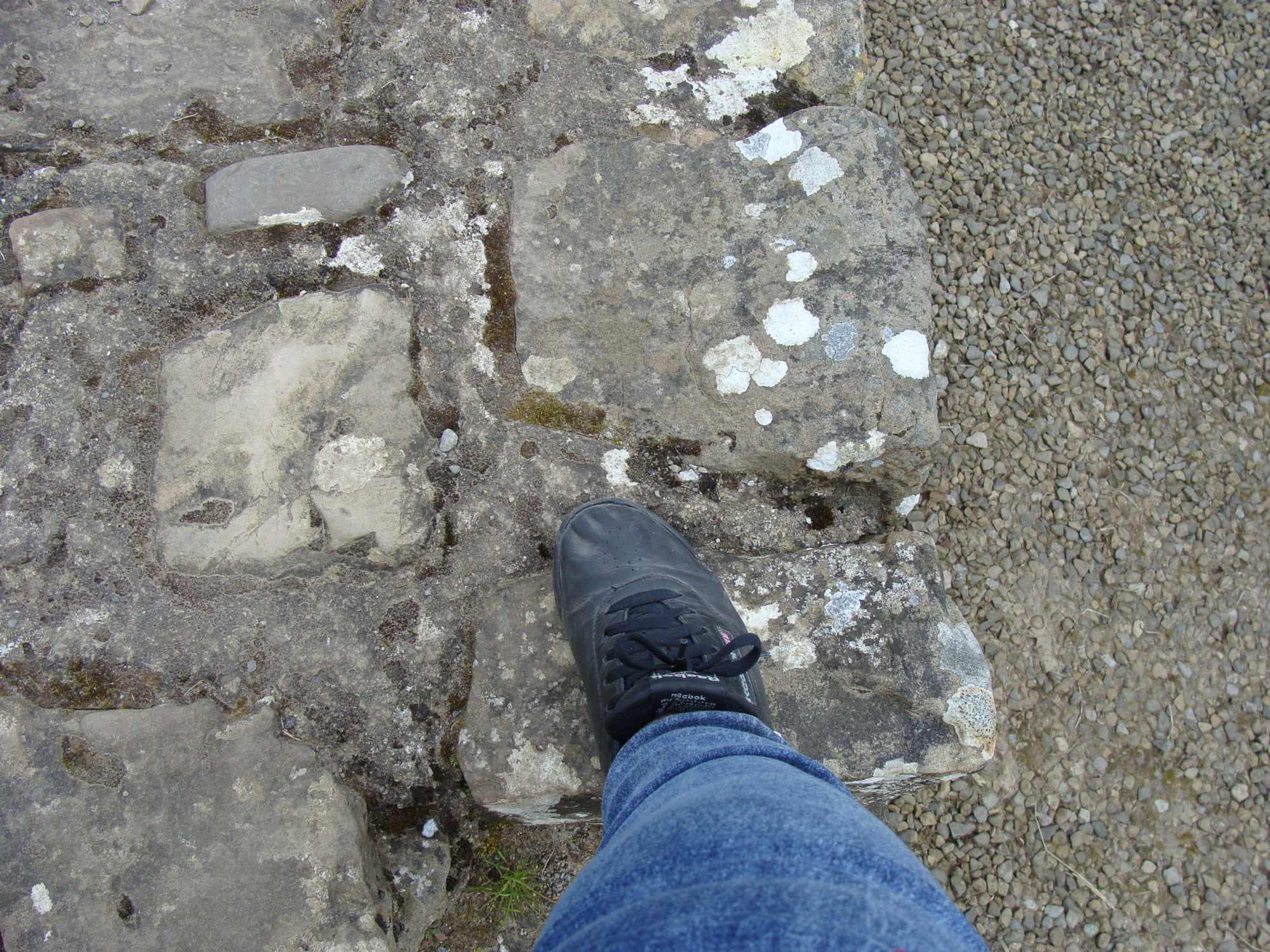This was our last day in England during what had been my very first real tour anywhere, back in 1983.
One of my very first posts in this blog was about how my life was nearly cut short at a five road intersection in Stratford by an articulated lorry (a semi in the US). In addition to adjusting to where the traffic was coming from, I also talked about adjusting to differences in American English and British English as well as to the food.
Both of my grandmothers had been British and, as long as I stuck to more familiar fare such as Shepherd’s Pie, Cornish Pasties, Bubble ‘n’ Squeak, etcetera, I was fine. It was those subtle differences between something like egg salad, which in the UK turned out to be sliced eggs on a bed of watercress, and egg mayonnaise, which would get me the US chopped eggs in mayonnaise. Don’t get me started about hamburgers or bacon. I learned a lot on that first trip.
We began our day getting picked up at our hotel and taken to Oxford. “Inspector Morse” had a couple more years to go before it appeared on our screens in the US through PBS. I knew that Oxford was a University Town, but didn’t yet understand the differences between a university in the UK and one in the US.
My general understanding is that, at Oxford, the students live in rooms and take meals at a college (like Hertford, Jesus or Brasenose), attend lectures mainly in small groups in the offices of their professors or grad students, and study in the libraries of the Radcliffe Camera, the Bodleian Library and others. A student will “read” for what the US calls a “major”.
The oldest colleges at Oxford were founded in the 13th century. Jesus College, the first one we visited, was founded by Queen Elizabeth I in 1571. The other two colleges we visited — Hertford and Brasenose — were founded in 1282 and 1509 respectively.
This visit was also long before the Harry Potter films. It was the dining hall of Christ Church College at Oxford that was used in the first film as the dining hall of Hogwarts.
The Radcliffe Camera was opened in 1749 and is a beautiful, round building originally built for study of the sciences, near Brasenose, All Soul’s, and Exeter colleges. It isn’t too far from the Bodleian Library either. Although the current building dates only as far back as 1602, the Bodleian Library (in some form or another) dates as far back as the 14th century.
We also paid a visit to the Old Schools Quad, which houses part of the Bodleian Library and has separate entrances for parts of the collections of the original schools — such as philosophy, religion, science, law and medicine.
Upon leaving Oxford, we went by the Martyr’s Memorial, which commemorates the burning at the stake of Hugh Latimer, Bishop of Worcester and Nicholas Ridley, Bishop of London as well as the former Archbishop of Canterbury, Thomas Cranmer a few months later. They had been convicted for heresy because of their Protestant beliefs after a quick trial in 1555.
Once we reached the environs of Stratford-upon-Avon, we headed out to Shottery to visit Anne Hathaway’s cottage. This was where William Shakespeare’s wife lived as a child. It was a 12 room thatched cottage built between the 15th and 17th centuries and looked like Snow White and her seven companions would emerge from it at any moment. I really loved touring it and seeing a regular house that old.
Back in town, we toured Shakespeare’s birthplace. I remember it being rather cramped and dark, but that was probably because of all of the people that were squearshed into the place. It seemed totally different on my latest trip (in 2016) when I could walk through at my own pace and talk with costumed interpreters who explained what I was seeing and answered any questions I had. I also remember that everyone else had to duck down when passing through doorways. Not this girl. I was just the right height.
After the birthplace was when we had some free time before jumping back on the tour coach and returning to London. This was when I had my encounter with the articulated lorry. When the driver parped his hooter at me, I shot into the air and seem to remember levitating across the road. In my original telling of this story, I mentioned polishing his windscreen as I flew across it. At any rate, I don’t think my short little legs ever moved so fast before or since.
Fortunately for Mom, she was already across the road. I had fallen behind for some reason and was trying to catch up when I nearly met my maker.
Next time – the beginnings of a 1984 “if this is Tuesday, it must be Belgium” kind of European tour.

Jesus College 
Brasenose College 
An Oxford street 
Lincoln College 
Part of Radcliffe Camera with Exeter College 
Another view of Radcliffe Camera with All Souls College 
Old Schools Quad 
Balliol College 
Martyrs Memorial 
English countryside en route to Stratford 
Anne Hathway’s Cottage 
Shakespeare’s Birthplace



















































































































































